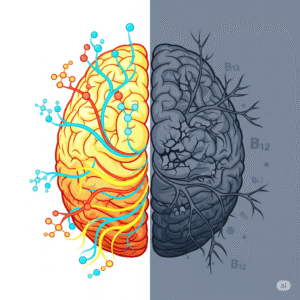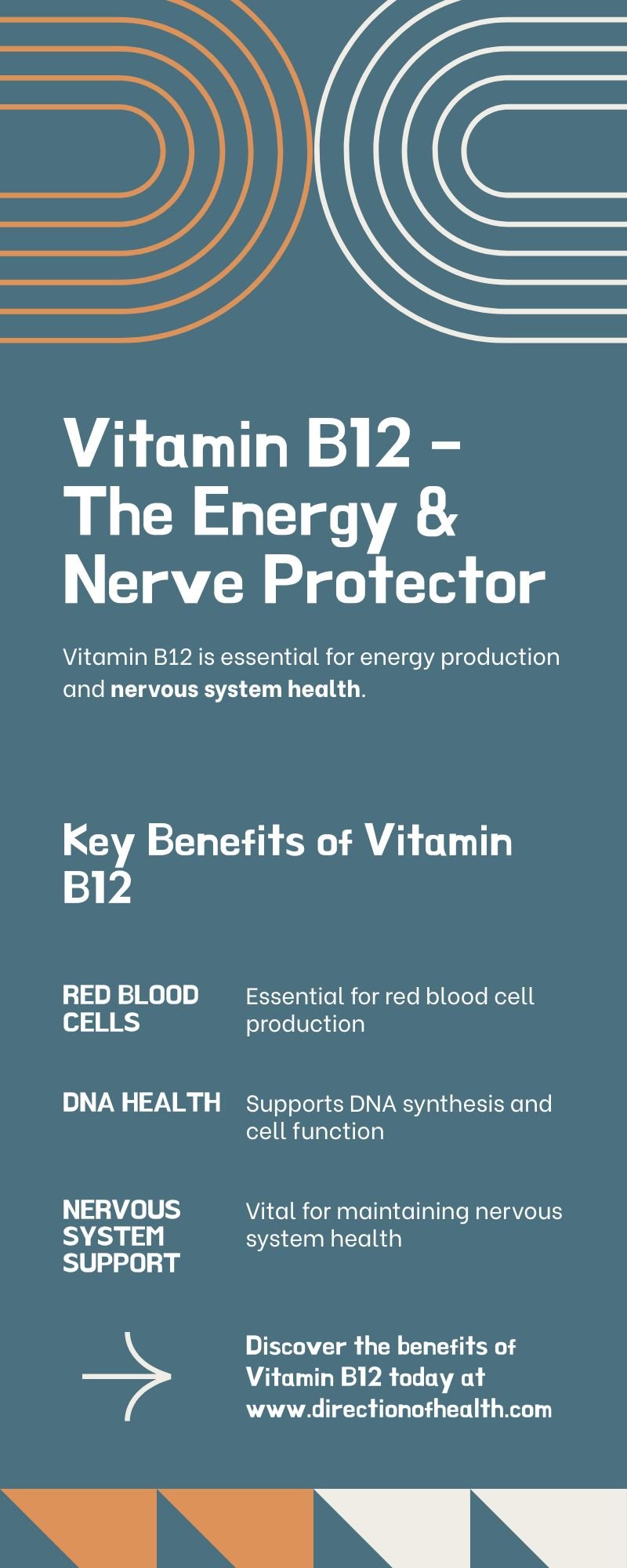What is Vitamin B12?
Vitamin B12 is a member of vitamin B family and important for many functions that it performs inside your body. It is water soluble that it is stored in the liver so if you have deficiency of this vitamin it wil take years to show symptoms.
It is unique and different from other vitamins due to presence of metal cobalt in its core. That is why it is also known as cobalamin.

It has many roles in the body as it is involved in the formation of red blood cells, synthesis of DNA and maintenance of nervous system. It is crucial for overall health of the body but many people don’t know risk that involves deficiency of B12.
It is present in the animal based foods but there are fortified plant based sources as well.
Functions of Vitamin B12
Vitamin B12 is important for the body due its functions that it performs inside body. It performs the following function in body.
Red Blood Cell Production
The most essential function that vitamin B12 performs in the body is its involvement in the production of red blood cells. Red blood cells transport oxygen to every cell of the body.
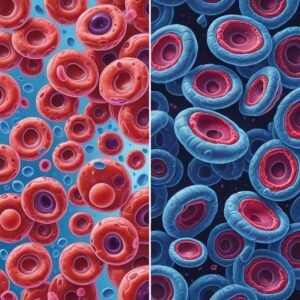
When there is deficiency of vitamin B12 in the body production of red blood cells is disturbed which can lead to megaloblastic anemia. During this condition red blood cells become large and ineffective results in fatigue, weakness and pale skin.
Synthesis of Myelin
Nervous system is made up of nerves. There is special type of fatty acis that surrounds the nerves know as myelin. Vitamin B12 is needed for the synthesis of this myelin. It shows the importance of B12 for nervous system.
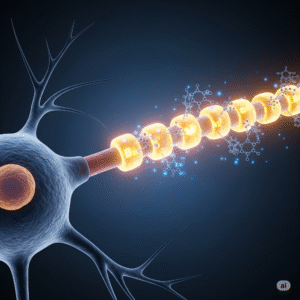
When nervous system doesn’t have sufficient supply of B12 its functions are compromised. It leads to the symptoms like numbness, tingling and memory issues.
DNA Synthesis
All the instruction and map for the development of cell and whole organism is stores in DNA. DNA is blueprint for all the functions and developments under which an organism goes.
Vitamin B12 is necessary for the formation of DNA. It is crucial for the overall growth and cell division which leads to the development of whole organism.
Energy Metabolism
Energy is needed for the normal functioning of the body. Every function that is occurring inside your body requires energy. Vitamin B12 helps to convert carbohydrates into glucose. Glucose is the primary source of energy to fulfil the body needs.
People who are deficient in vitamin B12 feel tired and sluggish due to lower level of energy.
Mood Regulation
One of the most important functions that is performed by the B12 is its involvement in the synthesis of brain chemicals like serotonin which regulates mood. Its deficiency causes mood disorders lie depression and anxiety.
Daily Requirement of Vitamin B12
According to National Institute of Health following is the daily requirement of vitamin B12.
| Age | Daily Requirement in mcg |
| Birth to 6 month | 0.4 mcg |
| 7–12 months* | 0.5 mcg |
| 1–3 years | 0.9 mcg |
| 4–8 years | 1.2 mcg |
| 9–13 years | 1.8 mcg |
| 14–18 years | 2.4 mcg |
| 19+ years | 2.4 mcg |
| Pregnant women | 2.6 mcg |
| Lactating Mothers | 2.8 mcg |
This is recommended daily intake but some people who are over 50 years or have certain medical conditions may be recommended to take higher amount specifically tailored for individual’s need.
Sources of Vitamin B12
Vitamin B12 is present naturally in animal based foods. It is not present in plant based food items but in the fortified items. It is present in following food items.

- Animal liver and kidney
- Fish
- Chicken
- Turkey
- Beef
- Milk
- Cheese
- Yogurt
- Eggs
- Fortified cereals
Causes of Vitamin B12 Deficiency
There are many factors which is responsible for the deficiency of this vitamin. Here are some main causes of its deficiency.

- People who are vegetarian are at higher risk of its deficiency as it is only present naturally in animal based food items. They are recommended to take plant based fortified food items to meet their body requirements of this vitamin.
- There are some medical conditions which interfere with the natural absorption of vitamin B12. These medical conditions include celiac disease, Crohn’s disease, and irritable bowel syndrome.
- When people get older their natural acid production in stomach also gets disturbed which results in the malabsorption of the essential vitamins and nutrients.
- Medication is another important factor that affects the absorption of vitamin B12. There are certain medicines like proto pump inhibitors, antacids and metformin can reduce the natural ability of the body to absorb B12.
- There is special type of protein which is present in the digestive track to absorb vitamin B12. When this protein id not working or absent in medical condition known as pernicious anemia then it affects the absorption of B12.
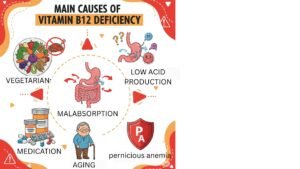
Medical Conditions Caused by Vitamin B12 Deficiency
This vitamin is crucial for the normal functioning of the body, when body is not getting enough supply of vitamin B12 it can cause many medical conditions. These conditions are as follows.
Megaloblastic Anemia
One of the major functions of this vitamin inside the body is its role in the production of red blood cells. When body is not having this vitamin bone marrow produces large and immature red blood cells. Due to this deficiency of red blood cells arises which causes megaloblastic anemia.
Signs and symptoms of megaloblastic anemia include fatigue, weakness and dizziness as there is less oxygen carriers in the body.
Neurological health
It is involved in the production of myelin which is vital for the health of nervous system. When level of vitamin B12 decreases in the body it can lead to damage nerves health.
Its deficiency symptoms includes
- memory loss
- tingling or numbness of hands or feet
- difficulty in walking
- cognitive decline
Birth Defects
It is essential for the proper growth of fetus inside the womb of mother. If a pregnant woman lacks vitamin B12 then it causes birth defects in newborns especially neural tube defects.

Glossitis and Mouth Ulcers
There is high probability of having glossitis and mouth ulcers in people who are deficient in the B12. During this medical condition tongue becomes swollen and inflamed. It becomes difficult to talk and eat properly. It also leads to mouth ulcers.
Depression and Mood Disorders
As described earlier that it is involved in the production of neurotransmitter serotonin. So when body becomes deficient of it, production of serotonin decreases and causes mood disorders like depression,
irritability and anxiety.
